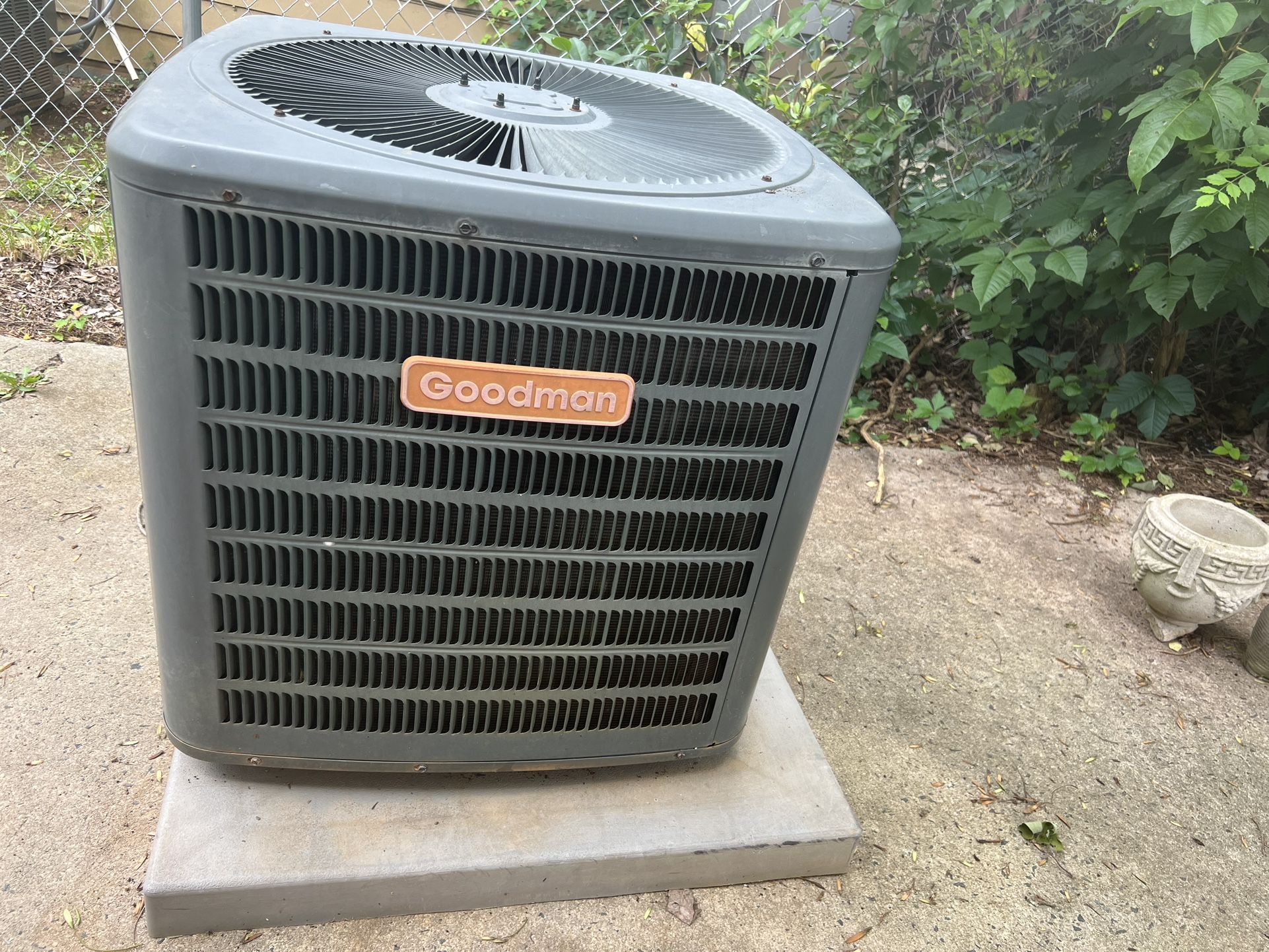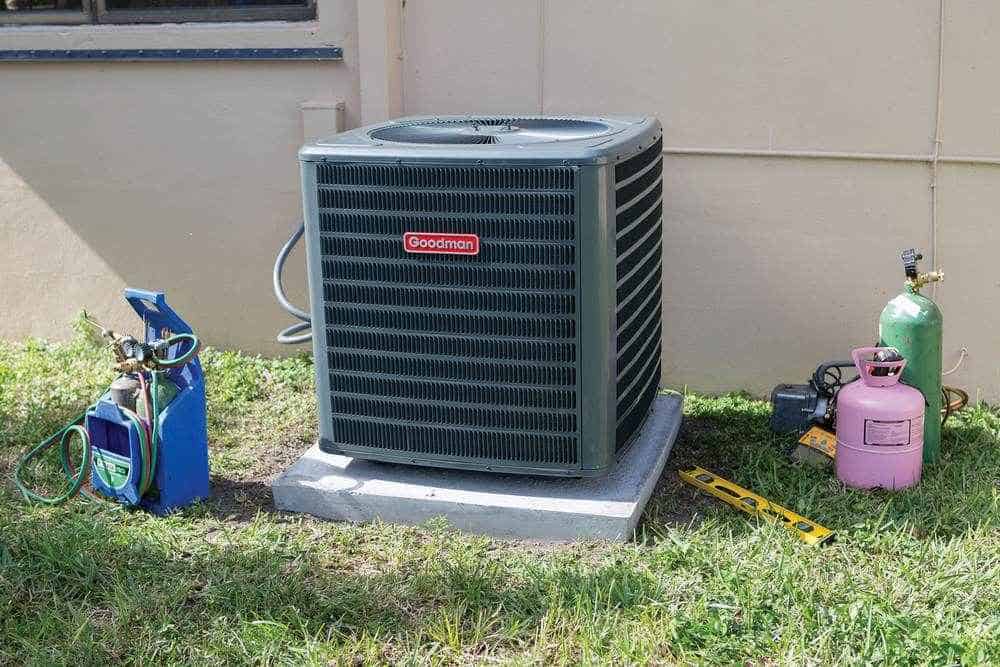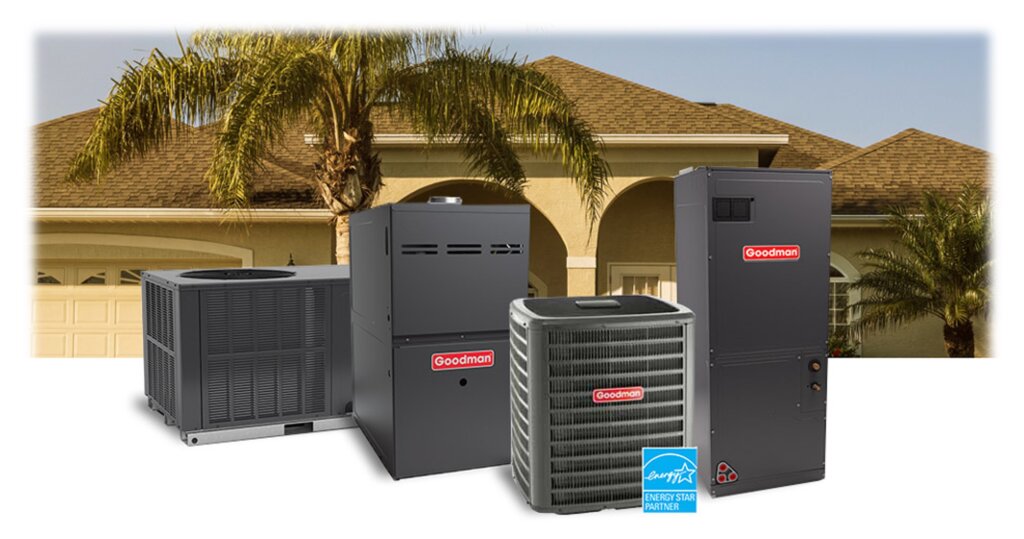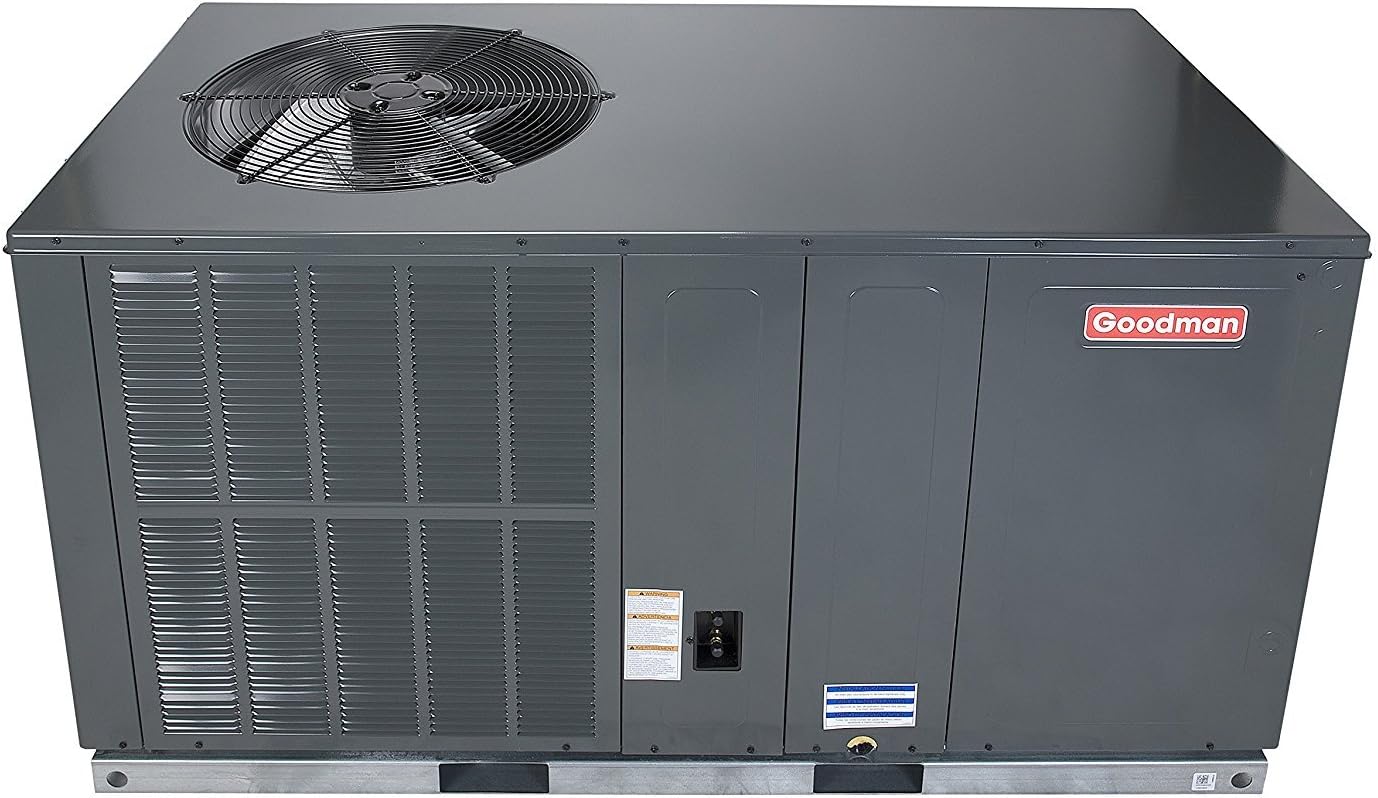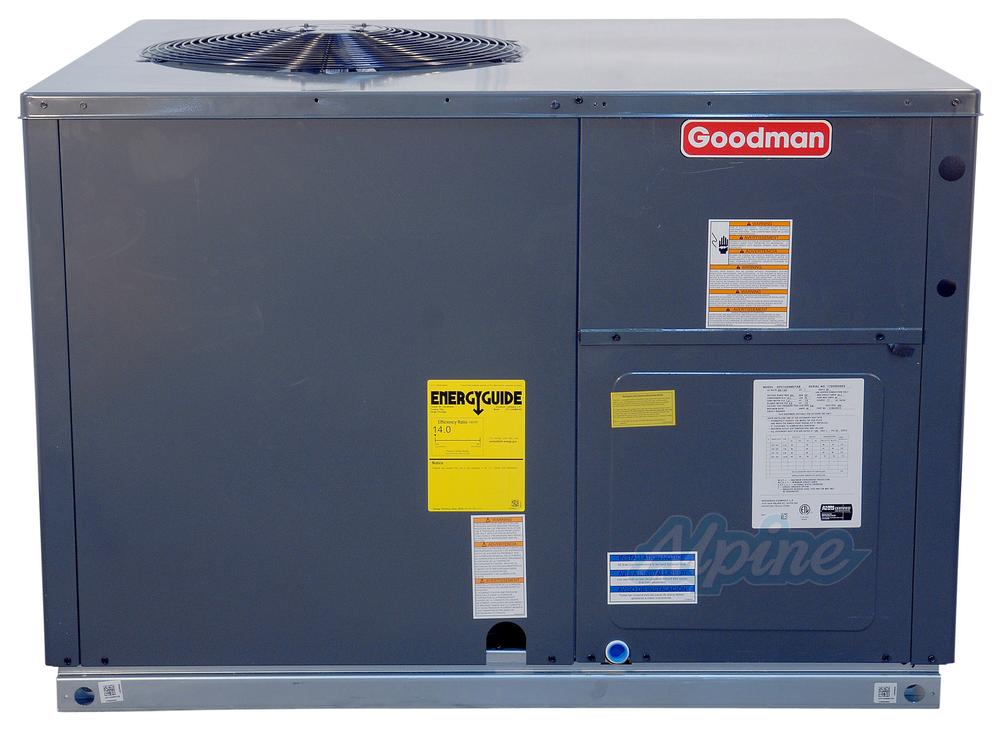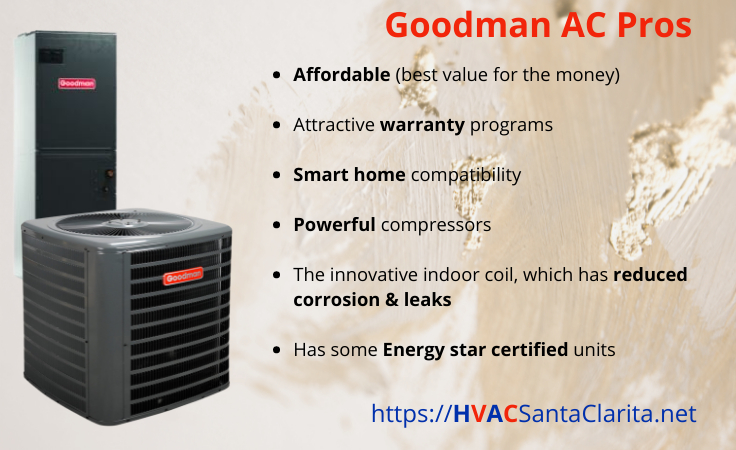Goodman Central Air Conditioning Units Reviews
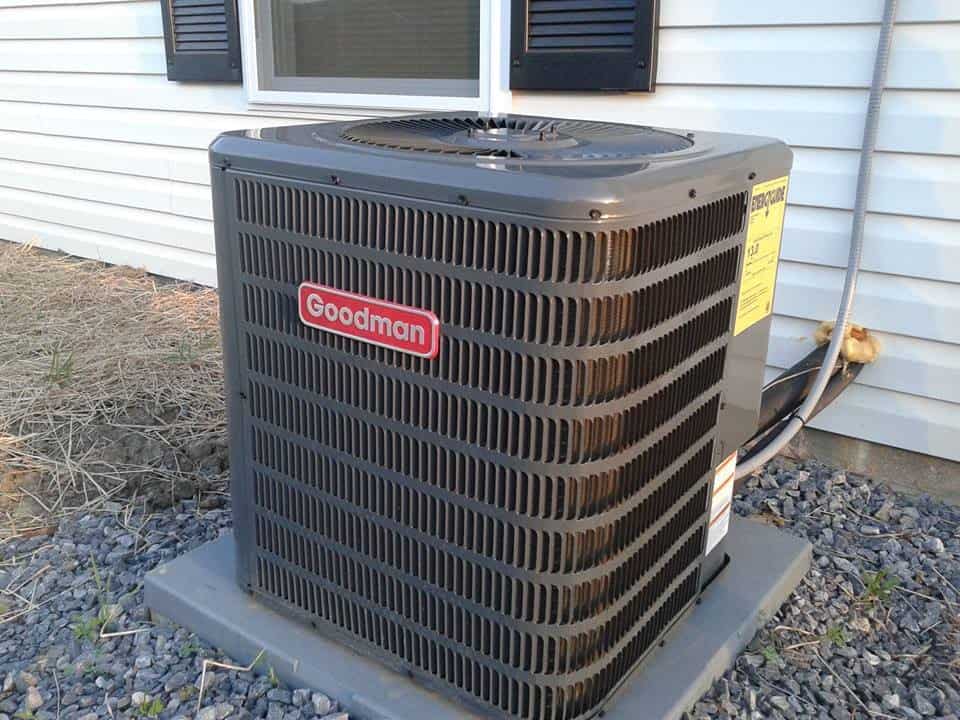
Choosing a new central air conditioning unit is a significant investment. You want a system that's reliable, efficient, and fits your budget. Goodman is a popular brand known for its affordability, but it's important to understand its strengths and weaknesses before making a decision. This guide provides a comprehensive overview of Goodman central air conditioning units, helping you determine if they're the right choice for your home.
What to Know About Goodman: A Brief Overview
Goodman Manufacturing has been producing HVAC equipment since 1982. They are now part of the Daikin group, a global leader in air conditioning solutions. Goodman’s main selling point is their lower price point compared to many other major brands. They aim to offer reliable cooling at a budget-friendly cost. While often seen as an entry-level brand, understanding their features and models is crucial.
Key Features and Technologies
Goodman AC units incorporate several features designed for efficiency and performance:
- Scroll Compressors: Many Goodman units use scroll compressors, which are known for their quiet operation and efficiency. Think of a scroll compressor like a smoother, more efficient engine in your car. It operates with fewer moving parts, leading to less wear and tear.
- SEER Ratings: SEER stands for Seasonal Energy Efficiency Ratio. This rating indicates how efficiently the unit cools over an entire season. Higher SEER ratings mean lower energy bills. Goodman offers a range of SEER ratings, typically from 13 to 19, allowing you to choose a model that balances upfront cost with long-term energy savings.
- R-410A Refrigerant: Goodman units use R-410A refrigerant, which is an environmentally friendly alternative to older refrigerants. Think of refrigerant as the "blood" of your AC system, carrying heat from inside to outside.
- SmartShift Technology: Some models feature SmartShift technology, which helps to minimize noise and improve efficiency during start-up and shut-down cycles.
- Durable Cabinets: Goodman units often have durable, powder-coated cabinets to protect internal components from the elements, extending the lifespan of the unit.
Goodman AC Unit Models: A Closer Look
Goodman offers a variety of central AC unit models to suit different needs and budgets. Here's a breakdown of some common series:
Goodman GSX13/GSX14 Series
These are entry-level models offering basic cooling at an affordable price. They typically have SEER ratings of 13 or 14, making them suitable for homeowners on a tight budget. While offering good value, keep in mind that the lower SEER rating will likely result in higher energy bills compared to more efficient models.
Pros: Most affordable Goodman option, reliable basic cooling.
Cons: Lower SEER ratings, potentially higher energy costs.
Goodman GSX16/GSX16 Series
Stepping up from the GSX13/GSX14, these models offer a SEER rating of 16, providing a better balance between upfront cost and energy efficiency. They often include features like a scroll compressor and a durable cabinet.
Pros: Improved energy efficiency compared to entry-level models, good value for the price.
Cons: Not the most efficient option available, may not have advanced features found in higher-end models.
Goodman GSX18/GSX18 Series
These units offer higher SEER ratings (typically around 18), resulting in significant energy savings. They often include advanced features like a two-stage compressor for more consistent cooling and better humidity control. A two-stage compressor is like having two gears in your car – it can operate at a lower speed for milder weather and a higher speed for hotter days.
Pros: High energy efficiency, potential for significant energy savings, improved comfort with two-stage compressor (some models).
Cons: Higher upfront cost compared to lower SEER models.
Goodman GVXC20 Series
This series represents Goodman's top-of-the-line central AC units. Featuring a high SEER rating, typically around 20, and a variable-speed compressor, these units offer exceptional energy efficiency and precise temperature control. A variable-speed compressor is like having cruise control in your car – it adjusts the cooling output based on the demand, providing consistent temperatures and maximizing efficiency.
Pros: Highest energy efficiency, variable-speed compressor for optimal comfort and savings, advanced features.
Cons: Highest upfront cost, may require a more complex installation.
Goodman AC Unit: Pros and Cons
To make an informed decision, consider the advantages and disadvantages of Goodman AC units:
Pros:
- Affordability: Goodman is known for its competitive pricing, making it an attractive option for budget-conscious homeowners.
- Reliability: While not considered a high-end brand, Goodman units are generally reliable, especially when properly installed and maintained.
- Warranty: Goodman offers a standard 10-year parts limited warranty (registration required), providing peace of mind. Be sure to register your unit to activate the full warranty benefits.
- Wide Availability: Goodman units are readily available through various dealers and contractors.
Cons:
- Lower Efficiency (Entry-Level Models): Entry-level models with lower SEER ratings may result in higher energy bills compared to more efficient brands.
- Brand Perception: Goodman is sometimes perceived as a "budget" brand, which may influence resale value in some markets.
- Installation Quality is Crucial: Proper installation is essential for optimal performance and longevity. Inadequate installation can lead to problems regardless of the brand. Always choose a reputable and experienced HVAC contractor.
Factors to Consider When Choosing a Goodman AC Unit
Before purchasing a Goodman AC unit, consider these important factors:
- SEER Rating: Determine the optimal SEER rating for your climate and energy consumption habits. In warmer climates, a higher SEER rating will generally result in greater energy savings.
- Unit Size: Choosing the right size AC unit is crucial. An undersized unit won't adequately cool your home, while an oversized unit can cycle on and off too frequently, leading to discomfort and wasted energy. A qualified HVAC technician can perform a load calculation to determine the correct size for your home.
- Budget: Determine your budget and choose a model that balances upfront cost with long-term energy savings.
- Contractor Reputation: Select a reputable and experienced HVAC contractor for installation and maintenance. Check online reviews, ask for references, and ensure the contractor is licensed and insured.
- Home Insulation: Ensure your home is properly insulated to maximize the efficiency of your AC unit. Proper insulation reduces heat gain, allowing the AC unit to cool your home more effectively.
Installation and Maintenance: Key to Longevity
The lifespan and performance of your Goodman AC unit depend heavily on proper installation and regular maintenance:
Installation:
- Professional Installation: Never attempt to install an AC unit yourself unless you are a qualified HVAC technician. Improper installation can void the warranty and lead to serious problems.
- Proper Ductwork: Ensure your ductwork is properly sealed and insulated to prevent air leaks and maximize airflow.
- Refrigerant Charge: The refrigerant charge must be correct for optimal performance. A technician will check and adjust the refrigerant level during installation.
Maintenance:
- Regular Filter Changes: Change your air filter regularly (typically every 1-3 months) to maintain good airflow and prevent dust and debris from damaging the unit. A dirty air filter restricts airflow, forcing the AC unit to work harder and reducing its efficiency.
- Coil Cleaning: Have the condenser coils cleaned annually to remove dirt and debris that can reduce efficiency.
- Professional Tune-Ups: Schedule annual tune-ups with a qualified HVAC technician to inspect and maintain the unit. A tune-up can identify potential problems early and ensure the unit is operating at peak efficiency.
Goodman vs. Other Brands
How does Goodman stack up against other popular AC brands?
Goodman vs. Carrier: Carrier is generally considered a premium brand with higher prices and potentially greater longevity. Goodman offers a more budget-friendly option, though Carrier often features more advanced technology.
Goodman vs. Trane: Trane is another well-regarded brand known for its reliability and durability. Trane units tend to be more expensive than Goodman, but they often offer higher efficiency and longer lifespans.
Goodman vs. Rheem/Ruud: Rheem and Ruud are often seen as mid-range brands offering a good balance of price and performance. Goodman may be slightly more affordable, but Rheem/Ruud often offer a wider range of features.
Are Goodman AC Units Right for You?
Ultimately, the best AC unit for you depends on your individual needs and circumstances. If you're looking for an affordable and reliable cooling solution and are willing to prioritize upfront cost over long-term energy savings, a Goodman AC unit may be a good choice. However, if you prioritize energy efficiency, advanced features, and brand reputation, you may want to consider other brands.
Before making a decision, obtain quotes from multiple HVAC contractors and compare the costs and features of different models. Be sure to factor in installation costs, potential energy savings, and warranty coverage.

